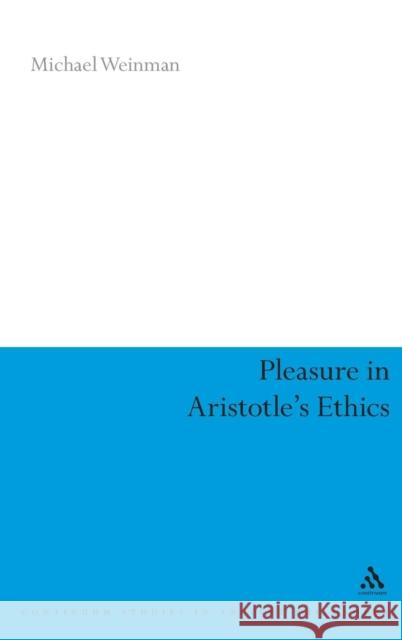Pleasure in Aristotles Ethics » książka
Pleasure in Aristotles Ethics
ISBN-13: 9780826496041 / Angielski / Twarda / 2007 / 176 str.
Pleasure in Aristotle's Ethics provides an innovative and crucially important account of the role of pleasure and desire in Aristotle's philosophy. Michael Weinman seeks to overcome common impasses in the mainstream interpretation of Aristotle's ethical philosophy through the careful study of Aristotle's account of pleasure in the human, but not merely human, good, thus presenting a new way in which we can improve our understanding of Aristotle's ethics. Weinman asserts that we should read Aristotle's ethical arguments in the light of his views on the cosmos (the living whole we call nature) and the never-changing principles informing that living whole. Weinman shows that what, above all else, emerges from this new re-reading of the ethical writings is a new understanding of human desire as the natural stretching ourselves toward pleasure, which is the good, and which is the good by nature. These lessons will demonstrate why we must understand the virtues as unified, why the good described in Nicomachean Ethics is both a human and greater-than-human good, and why the reasoning and desiring parts of the soul must be understood as companions. The necessary but as yet unrealised account of pleasure this book advances is integral to improving our understanding of Aristotle's ethics. This fascinating book will be of interest to anyone with an interest in Aristotle's ethical theory and in particular his Nicomachean Ethics.











